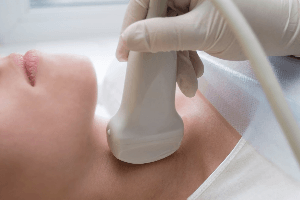9 Signs You Need to Have a Prostate Screening
Admin • May 21, 2020

Unfortunately, the American Cancer Society reported around 191,930 new cases
of prostate cancer for 2020. Fortunately though, when a physician detects prostate cancer early, the 10-year survival rate is 98 percent. Plus, in some cases, an issue with your prostate is benign and manageable with medication. By scheduling a prostate exam as necessary, you can stop the unpleasant symptoms and possibly address an issue before it worsens.
1. Are Over the Age of 50
Prostate cancer is most common in men who are 50 years of age or older. Therefore, if you're 50 or older, you should schedule an appointment for a prostate exam, even if you're not showing signs of prostate cancer. Generally, once you begin screening at 50, the exams are yearly. Your physician will discuss a recommended testing schedule based on your particular situation and health.
Typically, you'll receive a blood test only once you reach the age of 70 because the risks of other prostate testing outweigh the benefits.
2. Have a Family History of Prostate Cancer
Prostate cancer can run in families. If you have a first-degree relation with prostate cancer, in particular, if the person was younger than 65 at the time of the diagnosis, you should start receiving routine prostate screenings at 45. Examples of first-degree relatives include:
- Brother
- Father
- Son
If you have more than one first-degree relative diagnosed with prostate cancer before the age of 65, you should start seeking out routine prostate cancer screenings starting at the age of 40. Your risk is higher if you have more than one relation with it.
3. Are African American
African American men are at greater risk for prostate cancer than other demographics. Since your risk is higher than average, you should start seeking out routine prostate exams starting at the age of 45. Moreover, African American men are more likely to have aggressive or advanced prostate cancer.
According to the Mayo Clinic, the reason why African American men have a higher chance of prostate cancer is currently unknown.
4. Have Trouble Urinating
When your prostate swells, it places pressure on your bladder. As a result, you may experience difficulty urinating. Sometimes, the difficulty urinating will present itself as dribbling when you use the bathroom. Problems urinating may occur in either malignant or benign conditions.
5. Have Decreased Force When Urinating
Your prostate swelling affects your bladder, which can in return, interfere with your urine stream. If you have a prostate problem, you may notice your urine stream isn't as strong as it once was.
6. Urinate More Often Than Before
Once your prostate grows in size and presses against your bladder, you may have frequent, sudden urges to urinate. You might even notice you start to wake up throughout the night to use the bathroom.
7. See Blood in Your Urine or Semen
You should monitor your urine and semen for blood at all times, but especially as you age. Blood in either your urine or semen are both signs of a prostate problem and warrant a test for prostate cancer.
8. Experience Pain or Burning During Urination
Pain and burning during urination can indicate a variety of issues but can stem from prostate problems. If you experience pain or burning during urination, you should seek out medical attention. Your physician can provide the necessary testing to determine the cause of the problem and whether it stems from a prostate problem.
9. Experience Pain and Stiffness
Prostate problems can cause pain and stiffness. You should talk to a physician about a prostate screening if you have any of the aforementioned symptoms along with pain in any of the following:
- Rectal area
- Pelvis
- Upper thighs
- Hips
- Lower back
Routine prostate cancer screenings are just as important as a routine physical, especially if you're over 50 or have certain risk factors. You should also watch for the signs and schedule an appointment for a routine prostate exam if you experience any of them.
Contact Hampstead Medical Center, PC, serving Hampstead, NC, and the surrounding area, by calling us today for a prostate screening.

The IUD, or intrauterine device, is one of the most effective methods of birth control available. Unlike birth-control pills, you do not need to remember daily to administer medication, and the device itself lasts longer than shots and is easier to use than rings. Many women find all of these benefits desirable for a birth-control method. There are two general types of IUDs available to women. The first type is the copper IUD, and the other is hormonal. Which one is right for your personal birth-control needs?

Although the risk of cardiovascular disease increases as you get older, many people who die suddenly of a heart attack didn't previously know they had heart disease. That's why identifying risk factors for heart attack and stroke is so critical to cardiovascular health. Fortunately, with regular exams and the many types of screening tests available, doctors can detect early signs of heart disease.

Even if you've never had cause to doubt your thyroid function, if you're a female who has recently given birth, you may be at risk for thyroid issues. An estimated 12 percent of Americans deal with thyroid trouble at some point during their adult lives, and women are significantly more likely than men to develop a thyroid-related ailment. Unfortunately for new mothers, many of the most common signs of an underactive thyroid (like weight gain, mood swings, fatigue, and irritability) are also quite common for those dealing with a newborn's frequent night wakings and the realities of a post-partum body. Read on to learn more about some common (and not-so-common) signs that you could be dealing with a pregnancy-induced thyroid problem as well as some treatment options that can be safely administered or performed while you're breastfeeding. What Can Cause Thyroid Problems During Pregnancy? As with many other hormonal disorders, there are often more questions than answers when it comes to thyroid function. However, researchers have pinpointed a few factors and health conditions that can raise the risk of a woman’s developing a thyroid issue during or immediately after pregnancy. For example, while only around 7 percent of women are at a general risk of developing postpartum thyroiditis, this risk increases to 25 percent for women who have Type 1 diabetes or who dealt with elevated antithyroid antibodies during pregnancy. Women whose anti-peroxidase (anti-TPO) antibodies were elevated during pregnancy may have a 1 in 2 chance of developing postpartum thyroiditis, and those who have dealt with thyroid issues in the past (or during previous pregnancies) also deal with a significantly increased risk. In other cases, thyroid problems may have no cause that can easily be pinpointed; the rush of various hormones during pregnancy and the strain they can put on various systems, including the endocrine system, can create a sort of "perfect storm" in which thyroid problems may thrive. What Are Some Signs You're Dealing With Post-Pregnancy Thyroid Issues? Thyroid problems can take a number of forms, including hypothyroidism (an underactive thyroid), hyperthyroidism (an overactive thyroid), Graves' disease (an autoimmune condition that causes goiter), or Hashimoto's disease (an autoimmune condition in which the body's immune system attacks healthy thyroid cells, eventually stopping all thyroid function). The signs and symptoms for each thyroid disorder are unique and often at opposite sides of the spectrum. For example, hypothyroid patients often report being cold, having dry skin, sleeping more than normal, or gaining weight without trying while hyperthyroid patients sweat profusely, suffer from insomnia, and can lose a significant amount of weight in a brief period. Postpartum thyroiditis often manifests as either an underactive or overactive thyroid, which usually normalizes itself in a few months. Symptoms lasting longer than that or that appear to be getting worse may necessitate medical intervention. What Treatment Options for an Underactive Thyroid Are Best for New Mothers? Whether you suspect you have postpartum thyroiditis or have been formally diagnosed, you may be worried about how your potential treatment options could impact your ability to breastfeed and what effect (if any) they might have on your child. Fortunately, there are a number of effective options from which to choose. If your postpartum thyroiditis is deemed autoimmune in origin, there is some evidence that taking selenium supplements could help normalize your thyroid function without requiring you to take hormonal medication (which might pass into your milk supply). If your symptoms aren't severe and don't impact your daily life, you may instead opt for watchful waiting, maintaining contact with your doctor and reporting any worsening symptoms but avoiding medication or other treatment for the time being. However, if your doctor recommends supplemental thyroid hormone, this usually means some intervention is necessary to prevent permanent damage to your thyroid and the organs and systems that depend on a steady dose of hormones. Make an appointment with Hampstead Medical Center PC to get started taking care of your health.







